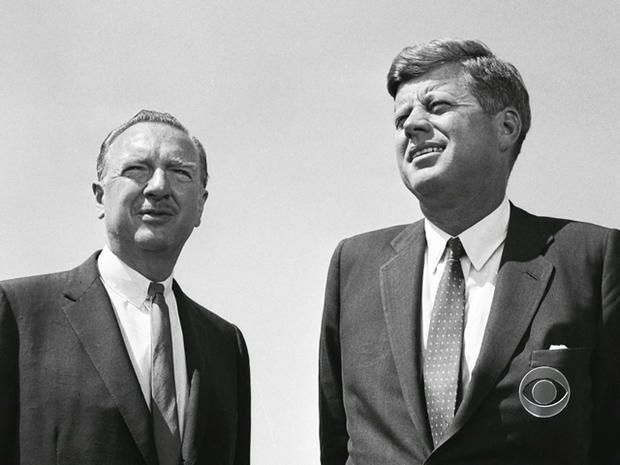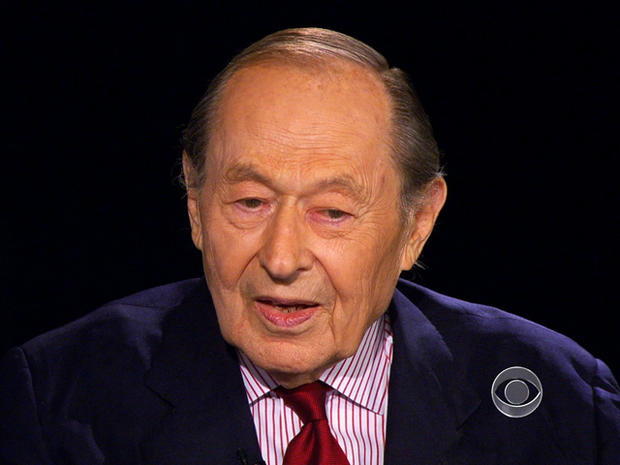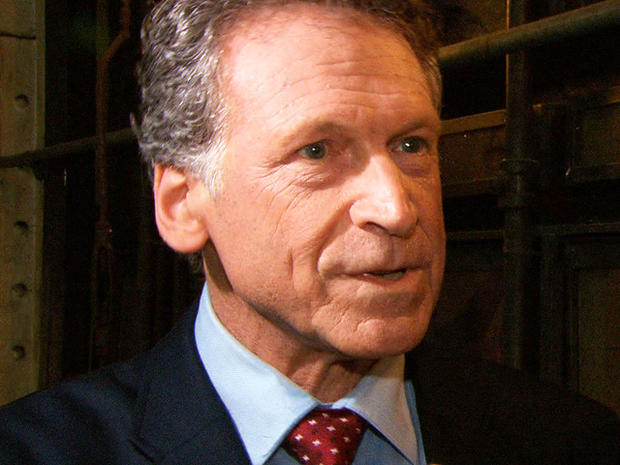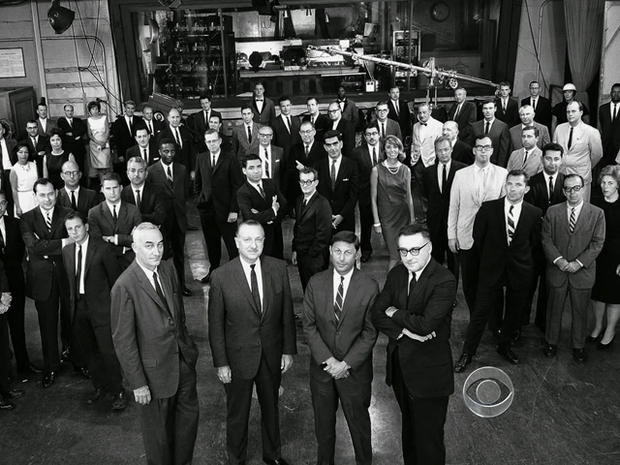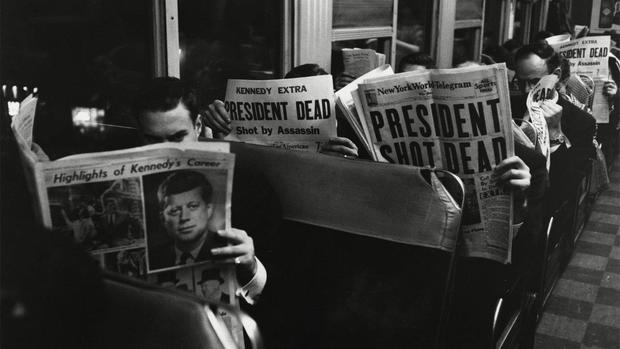"Evening News" marks golden anniversary of 30-minute broadcast
(CBS News) NEW YORK -- On Sept. 2, 1963, what had been, since 1948, a 15-minute broadcast, anchored first by Douglas Edwards and then Walter Cronkite, doubled to 30 minutes overnight.
A half-hour may not seem like a big deal in this era of 24-hour cable news, but in 1963, it revolutionized journalism. It was heralded in the press and even got the attention of the president, who gave Cronkite an exclusive interview for the debut broadcast.
"At his summer White House in Hyannis Port on Massachusetts' Cape Cod, President Kennedy today talked with this reporter of many things," Cronkite said on the first 30-minute broadcast.
Including Vietnam. Kennedy's comments set off a debate that continues today, about what he would have done about the war -- if he had lived.
"In the final analysis, it's their war," he said. "They're the ones who have to win it or lose it. We can help them. We can give them equipment. We can send our men out there as advisers. But they have to win it -- the people of Vietnam -- against the Communists."
Now, here's what happened right after the interview:
"Does that do alright from your standpoint?" Cronkite asked the president.
"Yeah, that was fine." Kennedy said. "Maybe just a little long on the answer, so I don't mind if they decide to edit any of this stuff."
He didn't mind, but his press secretary did. At the studio, the post-broadcast celebrations were interrupted by a phone call from press secretary Pierre Salinger.
That first night, producer Sandy Socolow was in the control room, which back then was in Grand Central Terminal.
"He accused Cronkite and the rest of us of distorting what the president said, of misleading the American people by faulty editing," said Socolow. "Which if you look at the transcripts and you look at the cut, it just doesn't hold water."
In the days of the 15-minute broadcast, Cronkite and his staff would have to make a mad dash, just before airtime, from the newsroom on one side of Grand Central to the studio on the other. Eric Shapiro, who is the director of the Evening News today, was just starting his career at the network back then.
"This was the shortcut," Shapiro said of the catwalk above the terminal. "They would just run as fast as they could across here, running through this catwalk."
That wouldn't do for the half-hour broadcast, so the newsroom became the studio, with Walter surrounded by wire machines, clanking and clattering. The expanded newscast that came out of that newsroom would help change the world.
"It's one thing to say there was the police and African-Americans who had and a clash in Birmingham; it's another thing to see the barking dogs and a fire hose," said historian Douglas Brinkley. It's one thing to say they were using napalm in Vietnam, and it's another thing to actually see napalm."
In 1963, Marvin Kalb was on the diplomatic beat for CBS News. He told us the expansion to half an hour was "liberating."
"It opened the door for many of the reporters who had never been seen before to show their stuff," said Kalb. "And night after night, Walter was able to introduce reporters from all over the world."
Just 81 days after Cronkite signed off on Sept. 2, 1963 -- 81 days after that interview with President Kennedy -- the broadcast of Nov. 22 opened this way:
"John Fitzgerald Kennedy was assassinated today in the 46th year of his life and his third year as President of the United States," Cronkite reported.
That half-hour was part of four days of unprecedented live coverage that saw television news come of age. More Americans were now getting their news from TV than newspapers.
The expansion of the broadcast to 30 minutes had come just in time for some of the most momentous stories in the nation's history: the marches for civil rights, boots on the ground in Vietnam, first steps on the moon.
